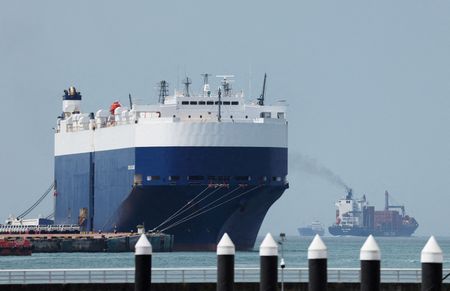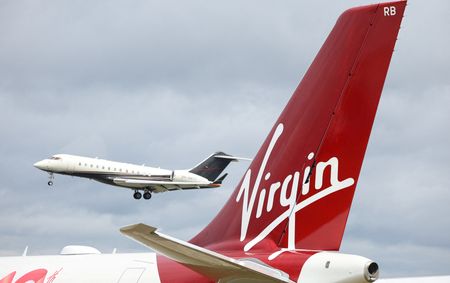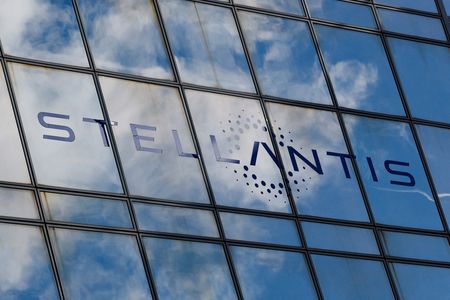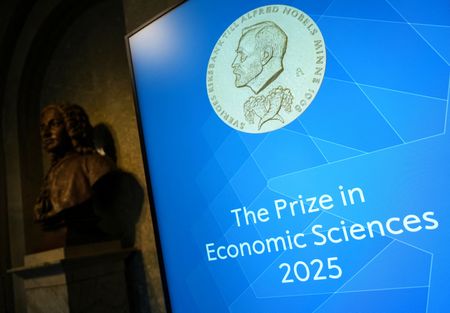By Enes Tunagur
LONDON (Reuters) -The International Maritime Organization will meet this week to formally decide whether to impose a carbon emissions price on global shipping, a move supported by an EU-led bloc including Britain, China and Japan but strongly opposed by the U.S.
The IMO struck a preliminary deal to charge the global shipping industry for emissions in April after the U.S. pulled out of associated talks, prompting Washington to threaten “reciprocal measures” against any fees charged on U.S. ships.
The April deal is now tabled for adoption at a meeting of the IMO’s environmental committee scheduled for October 14-17, which is expected to include the U.S.
Washington has continued its efforts to derail the measure since April, threatening port fees and visa restrictions against countries that support it.
“The United States will be moving to levy these remedies against nations that sponsor this European-led neocolonial export of global climate regulations,” the U.S. State Department said in a statement on October 11.
European Union states, meanwhile, have called for the IMO measure to be adopted, the European Commission said in an October 12 statement.
The IMO’s proposed marine fuel emissions standard would impose a fee on ships bigger than 5,000 tons that breach a threshold of emissions, and reward vessels burning cleaner fuels.
Ships will either buy remedial units or pay a penalty if they emit more than the threshold. Ships emitting less than a separate threshold will receive surplus units.
Revenues from the measure would be collected by an IMO Net-Zero Fund to be created by the IMO Secretariat, according to the draft rules. Details of revenue distribution have yet to be decided.
According to research from University College London, the IMO fuel standard would generate $11 billion-12 billion per year between 2028-2030, as most ships would likely pay the penalty in the early years of implementation.
(Reporting by Enes Tunagur; Editing by Jonathan Saul and Jan Harvey)










